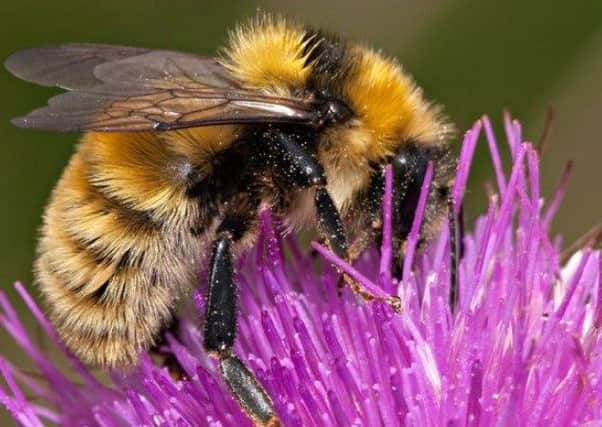Crop pollinators project aims to boost sustainability
This article contains affiliate links. We may earn a small commission on items purchased through this article, but that does not affect our editorial judgement.


The project, which is based on the Lothians Monitor farm, will see researchers from Scotland’s Rural College (SRUC) work on a variety of schemes targeting improving environmental sustainability.
• READ MORE: Farming news
AHDB Cereals & Oilseeds knowledge exchange manager Gavin Dick said: “This project is not just about ensuring our agricultural industry becomes more productive and profitable, it also about the long-term sustainability of our land and resources.”
Advertisement
Hide AdAdvertisement
Hide AdThe pollinator project will be Prestonhall Farm, part of the Lothians Monitor Farm. This is an arable enterprise with approximately 120 hectares for spring barley, 160 hectares winter wheat, 70 hectares winter barley, 70 hectares oilseed rape and 60 hectares oats.
The project will see Prestonhall increasing wildflower numbers on farm, as well as growing more insect-pollinated crops such as oilseed rape.
Explaining how the work that will be carried out, SRUC agricultural ecologist Dr Lorna Cole said: “We hope to see a greater diversity of pollinators such as bumblebees, solitary bees and hoverflies, and of course an increase in their abundance.”
Cole added: “Improving pollinator populations should improve and stabilise pollination in insect pollinated crops such as oilseed rape and field beans.
“Another benefit we hope to see is an increase in natural predators including ladybirds, spiders and parasitic wasps, which should decrease the numbers of crop-damaging pests such as aphids on farm. We’re working on the ecological intensification theory.”